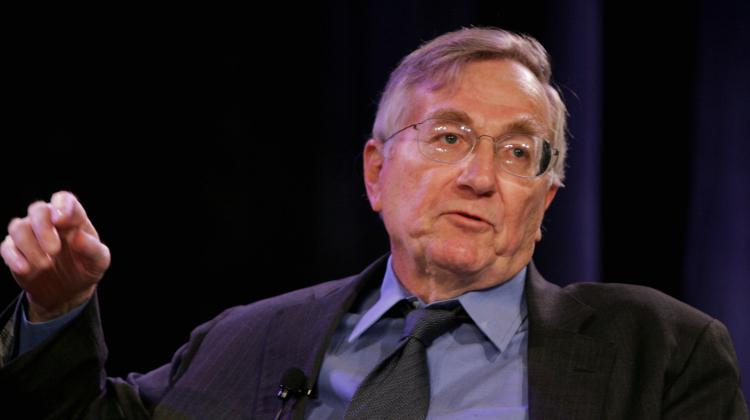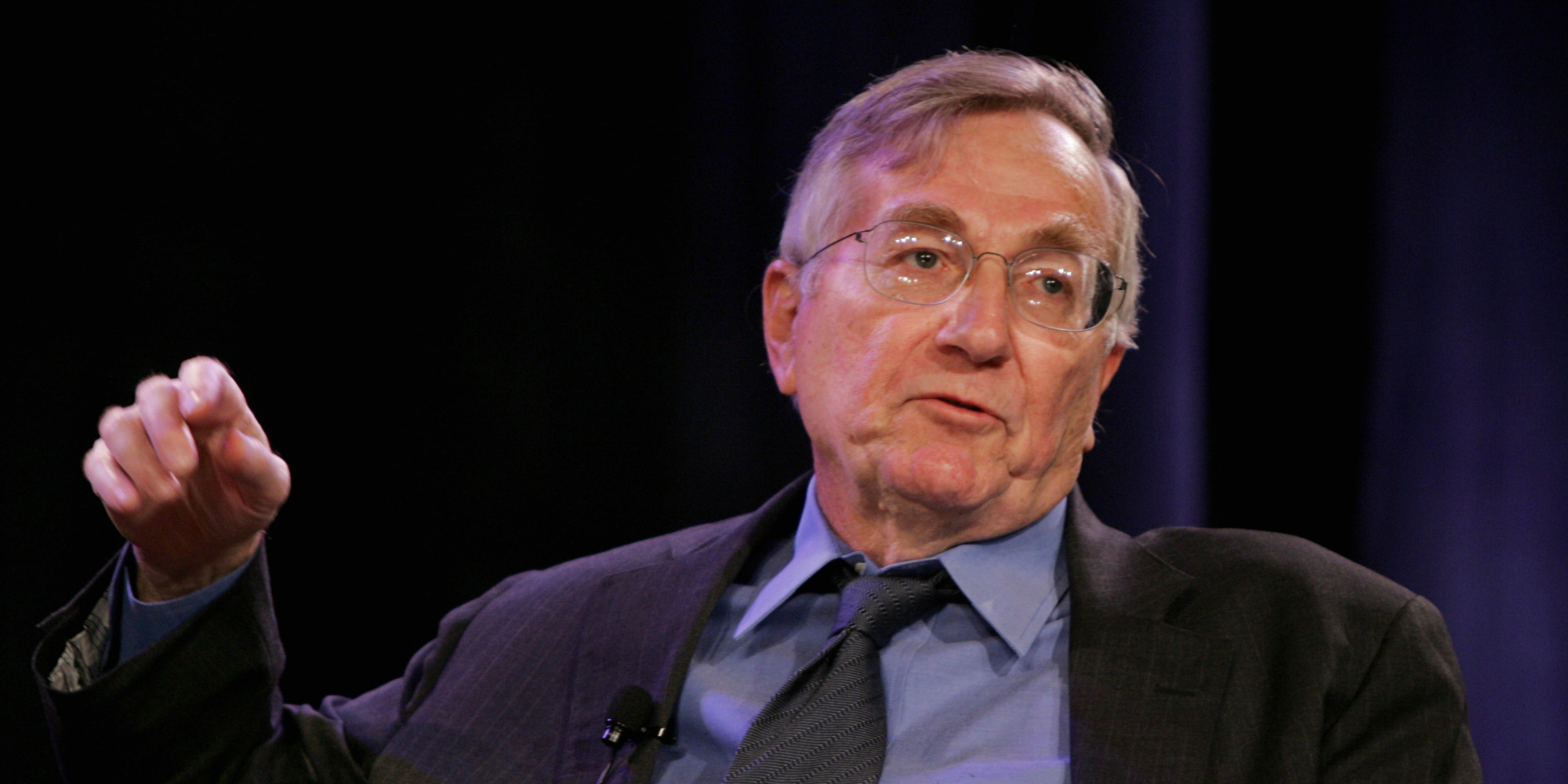
Lesson Outline
On the day American commandos killed Osama bin Laden, did Navy SEAL Team 6 infiltrate Pakistani air space and storm the Al-Qaeda leader's secret hideout after a perilous firefight?
Or were the SEALS part of an elaborate conspiracy involving U.S. and Pakistani officials? Were they permitted to cross into Pakistan and then escorted into a safe house where bin Laden had been held prisoner for five years? Was the daring raid described by the president and dramatized in a major Hollywood movie really a cold-blooded execution?
The first of these narratives was presented to the American public on May 2, 2011, by President Barack Obama in a dramatic announcement that many believe was pivotal in winning him a second term. The second came more recently in an article by Seymour Hersh, the Pulitzer Prize-winning investigative reporter who uncovered the My Lai Massacre during the Vietnam War and the abuse of Iraqi prisoners held by U.S. forces at the Abu Ghraib.
Hersh's 10,000-word article, published in the London Review of Books, has sparked not only controversy but debate within journalism over the validity of the story as some reporters produced stories supporting elements of Hersh's account while others dismissed his story as thinly sourced and its author as a "crank" or "conspiracy theorist."
Asked by CBS how news consumers should know whom to believe, Hersh replied: “Ah, the perils of a free press. What can I tell you. I have no guidance for anybody about how to believe, what to believe. I can just tell you … this story was very carefully checked and edited in London by the editors and fact-checkers of the London Review of Books.”
For savvy news consumers, it's not about whether you find Hersh or his editors more trustworthy than the president or the other principals in the story who have challenged his account. Nor is it about whose narrative sounds more credible. It's about fairness, transparency and a thoughtful evaluation of sources and evidence. It's about whether one of the most noted investigative reporters in the business achieved News Literacy's highest standard of reliability -- whether Seymour Hersh opened the freezer.
1. IS THE STORY FAIR?
Hersh might argue the story is fair to the facts, that the information he uncovered was so compelling that there was no need to qualify or even attribute statements like: “The most blatant lie told by our government was that Pakistan’s two most senior military leaders – General Ashfaq Parvez Kayani, chief of the army staff, and General Ahmed Shuja Pasha, director general of the ISI – were never informed of the U.S. mission.”
Though that might be an argument against the need for balance, the standard for fairness would have required Hersh to include the voices of people with firsthand knowledge who were on the record in support of the story the American people were told by their president. Hersh did note that the "White House did not respond to requests for comment." He did not, however, include comments from Leon Panetta or Michael Morell, the top CIA officials at the time, who have both challenged Hersh's account. Panetta, CIA director at the time, told CNN: “I can assure you bin Laden was not in the custody of Pakistan, and was operating, obviously, in this compound."
Morrell wrote an Op-Ed column in The Wall Street Journal in which he offered a point-by-point rebuttal of Hersh's account, including the reporter's assertion that bin Laden's remains had been thrown from the helicopter by the SEALS. "Bin Laden’s body received a proper Muslim burial at sea." Morrell wrote. "How do I know? I heard the president give the order, and I saw photographs and video of the burial at sea."
Even if Hersh's sources were right and both Panetta and Morell are lying, it's clear that the facts are in dispute. Hersh chose not to include the voices of those disputing his conclusions in the article. Rob O’Neill, the former Navy Seal who says he shot bin Laden, told Fox News that he wished Hersh had interviewed hm. O'Neill continues to back the account given by Obama on the night of the raid: "Everything he said we did, we did.”
2. HOW RELIABLE ARE THE SOURCES?
Although he has stressed in interviews that other sources have confirmed facts in his story, Hersh also acknowledges that his account relies heavily on what he was told by two retirees: Asad Durrani, a retired general who was head of the Pakistani intelligence in the early 1990s, and a former senior U.S. intelligence official granted anonymity by Hersh.
Here's how Hersh described his sources in his fifth paragraph:
The major U.S. source for the account that follows is a retired senior intelligence official who was knowledgeable about the initial intelligence about bin Laden’s presence in Abbottabad. He also was privy to many aspects of the Seals’ training for the raid, and to the various after-action reports. Two other U.S. sources, who had access to corroborating information, have been longtime consultants to the Special Operations Command. I also received information from inside Pakistan about widespread dismay among the senior ISI and military leadership – echoed later by Durrani – over Obama’s decision to go public immediately with news of bin Laden’s death. The White House did not respond to requests for comment.
What does News Literacy's IMVAIN method of source evaluation say about their reliability?
Independent? We have no way of knowing. Their outsider status as retirees gives them some distance from their governments, although Morell suggests embarrassment stemming from the American raid might have given Pakistani sources a reason to lie to Hersh.
Multiple? Hersh maintains his narrative was supported by multiple sources.
Verifiable? Hersh's sources provided no direct evidence to back up their assertions. “I don’t have a piece of paper," Hersh told Bob Garfield of "On the Media" on NPR. "I don’t have a thing in writing that says anything … It’s easy when you have a document … But most of the stories you get, and all the stories I was writing for the New Yorker after 9/11, are all done on exactly the same basis as this story. One main source, something you verify.”
Authoritative or Informed? The two retirees may have been knowledgeable, but in a combative interview with Slate.com, Hersh conceded that he never spoke to any of the principals in the story -- the people with firsthand knowledge of what happened that night.
Isaac Chotiner: If the plan until the night of the raid was to use the cover story that he had not been killed in a raid but in a drone strike, then why have the raid at all? Why not just have the Pakistanis kill him? Why risk Obama’s presidency?
Seymour Hersh: Of course there is no answer there because I haven’t talked to any of the principals. But I can just give you what the people who were in the process believed to be so, which is that for [Gens.] Pasha and Kayani, the chance of something like that getting leaked out would be devastating.
Named? Only Durrani is. All of Hersh's other sources were anonymous.
3. DID HE OPEN THE FREEZER?
In the days that followed the publication of Hersh's article, the journalistic peer review process produced support for some elements of his narrative. Reporting by NBC and The New York Times supported the idea that the discovery of bin Laden may have had more to do with a "walk-in" tip from a Pakistani officer seeking a $25-million reward than with efforts to follow a courier. And American officials have acknowledged it's possible some elements of Pakistan's military or intelligence service may have been aware of bin Laden's presence in Abbottabad. But other than a blog written in August 2011 by R.J. Hillhouse telling largely the same conspiracy story -- a post that Hersh maintains he was unaware of -- the London Review of Books article stands alone in its most explosive conclusions.
In time, Hersh may be proven correct. For now, though, considering the lack of direct evidence or more authoritative sources, a savvy news consumer would have to conclude that even if Hersh managed to learn what's inside the freezer, he certainly didn't open it for us.
Questions for Classroom Discussion
- Which account of the killing of bin Laden do you believe? Why?
- Hersh's article went through a verification process. It was produced by an independent reporter and publisher. And, through the many interviews he has granted, Hersh certainly has made himself accountable. If VIA is not in question, why might the article not be considered reliable?
- Columbia Journalism Review columnist Trevor Timm wrote an article headlined: "The media reaction to Seymour Hersh's bin Laden scoop has been disgraceful." Do you think the criticism of Hersh and his account were out of line or just part of the journalistic verification process we call peer review?
-
Key Concepts
-
Course Sections
-
Grade Level
-
0 comments
-
1 save
-
Share

